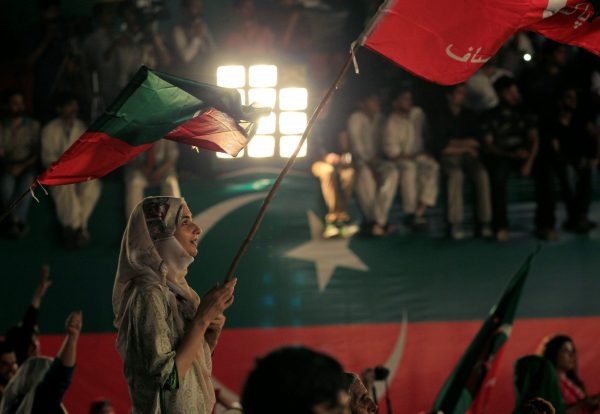On 28 July 2017, an ascendant and increasingly assertive Supreme Court of Pakistan found former prime minister Nawaz Sharif in violation of his oath, disqualified him for dishonesty and ordered him to go to trial on financial corruption charges.
This episode was the direct result of the 11.5 million files known as the Panama Papers that were released to the media in March 2016. The files included information on offshore companies and assets, including four prime London properties that are owned by Sharif’s children.
The Panama Papers incident was the single most discussed subject in Pakistan in 2017. It consumed thousands of minutes of television debate and occupied considerable space in the print media since it involved a sitting prime minister.
Most Pakistanis hailed the Supreme Court ruling as a significant step forward in the country’s struggle to prioritise accountability of the ruling elites as a necessary component of a functional democracy. The court ruled that the Sharif family had failed to explain the mode of transaction and source of some US$40 million they moved out of Pakistan and failed to declare whether the family had paid taxes on this amount.
Sharif and his loyalists decried the Supreme Court for disqualifying the former prime minister on what they believe are weak legal grounds. Embittered by the loss of power and with the next election only a few months away, Sharif has continued to pour scorn on the judiciary by implying it acted at the behest of the military establishment.
This tug of war between the ruling elites and the judiciary hardly contradicts the ground realities. Pakistan’s elitist model of governance continues to breed corruption and nepotism. Over decades it has encouraged impunity and arbitrariness among the civilian and military ruling elites, which directly imperils rule of law and good governance.
Former police chief and tax ombudsman Shoaib Suddle is one of a growing number of figures in Pakistan who believe that the only way to fix the country’s problems — particularly its floundering economy — is a national consensus on across-the-board accountability. He emphasises that the ruling elites have to accept accountability as an essential element of democracy.
In this context, Sharif’s disqualification and the ongoing criminal court proceedings against him represent a much-needed assertion of rule of law through the apex court.
Though a spate of violence swept across Pakistan in February 2017, including a massive blast at a shrine that killed over 150 people in the southern Sindh province, Pakistan’s anti-terror campaign as a whole stayed its course.
Statistical evidence suggested a marked decline (nearly 70 per cent) in terror-related fatalities, but anti-state elements (the Tehreek-i-Taliban Pakistan and its affiliates) did begin targeting security forces, which left at least 200 police officers and soldiers dead in various parts of Pakistan.
Violence is keeping relations with Afghanistan on the boil. Islamabad claims that perpetrators of terror in Pakistan emanate from sanctuaries in eastern Afghanistan, while Kabul blames continued blood-letting in Afghanistan on terrorists it alleges are based in Pakistan.
Relations remain almost frozen with India — a country that plays a key role in US President Donald Trump’s Afghanistan policy and one that has aligned itself closely with Kabul. The arrest of Indian naval officer Kulbhushan Jadhav in Pakistan’s Balochistan province in March 2016 became the biggest source of tension between New Delhi and Islamabad after Jadhav was sentenced to death in April 2017. According to Pakistani officials, Jadhav admitted to being hired by India’s Research and Analysis Wing spy agency to undertake espionage in Pakistan and also admitted to running a business in neighbouring Iran under a Muslim name. India denies the claims and successfully petitioned the International Court of Justice to stay Jadhav’s death sentence.
Pakistan’s elites are in conflict, India–Pakistan relations are under pressure and there is continuing terrorist violence. Pakistan does not face a straightforward year as it goes into its 2018 general elections.
Imtiaz Gul is Executive Director at the Centre for Research and Security Studies, Islamabad.
This article is part of an EAF special feature series on 2017 in review and the year ahead.

